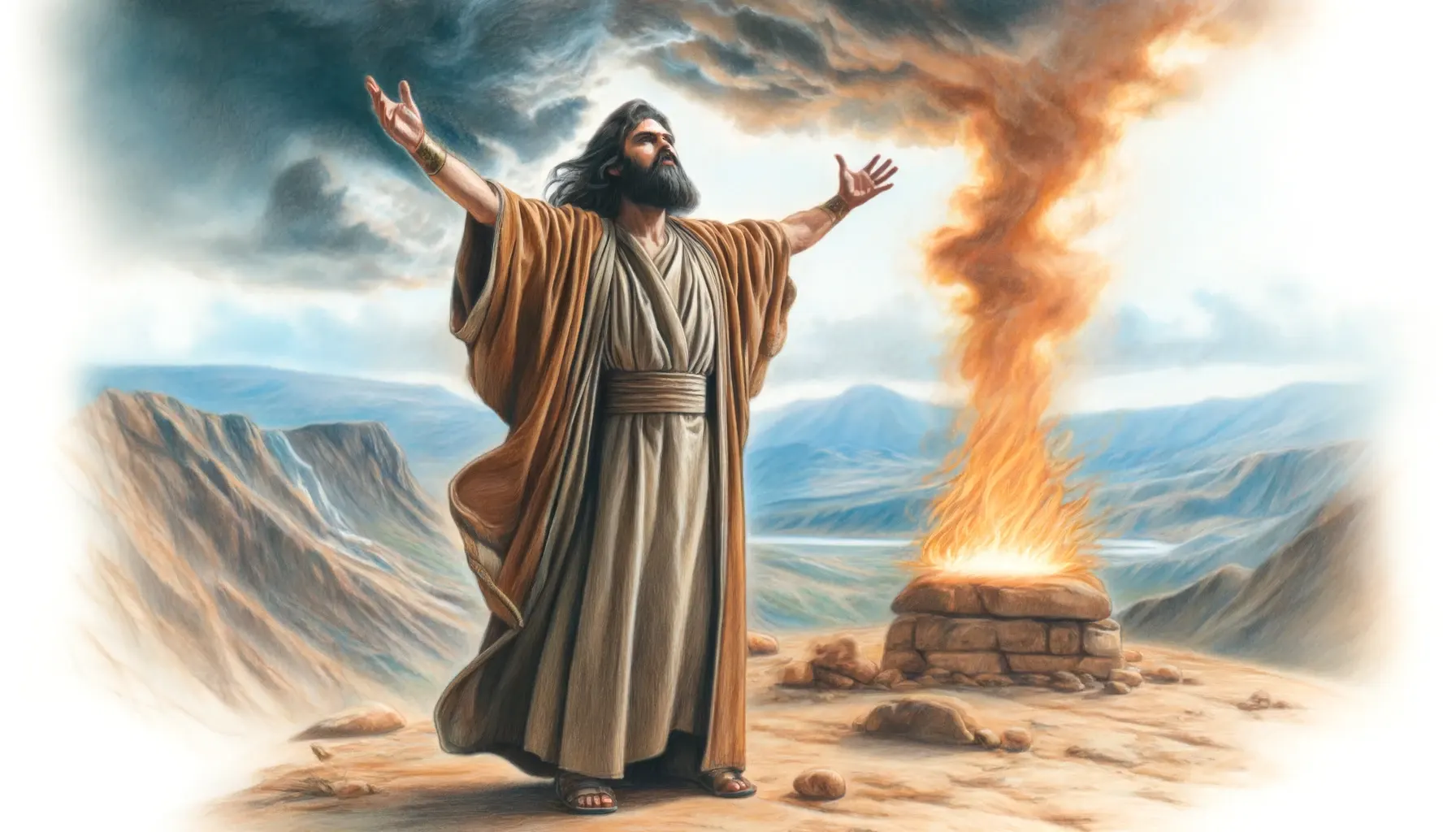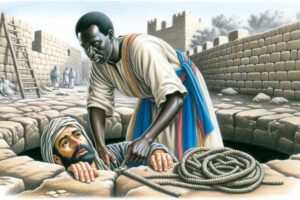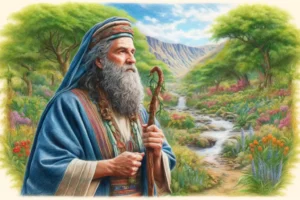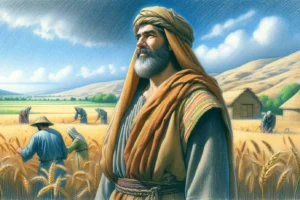
Elijah: The Prophet of Fire
Elijah the Prophet is a prominent figure in the Bible, known for his dramatic and powerful acts in the name of God. Here are some quick facts about him:
- Biblical Accounts: Elijah’s story is primarily found in the Books of 1 and 2 Kings in the Old Testament.
- Meaning of Name: His name, Elijah, means “Yahweh is my God,” symbolizing his commitment to the worship of Yahweh over Baal.
- Miracles and Prophetic Acts: Elijah performed many miracles, including raising the widow’s son from the dead, causing a drought for three years, and summoning fire from heaven.
- Confrontation with Baal’s Prophets: One of Elijah’s most famous confrontations was against the prophets of Baal on Mount Carmel. He challenged them to prove whose god was real, resulting in a dramatic display of divine fire from heaven that consumed his offering (1 Kings 18:20-40).
- Ascension: Elijah is one of the two figures in the Bible who was taken into heaven without dying, the other being Enoch. He ascended in a whirlwind, riding a chariot of fire (2 Kings 2:11).
- Symbolic Presence: Elijah is seen as a harbinger of the Messiah in Jewish tradition. At Passover Seder, a seat is often left open for Elijah.
- New Testament References: He appears in the New Testament during the Transfiguration of Jesus, where he is seen talking with Moses and Jesus (Matthew 17:3).
Elijah, one of the most compelling prophetic figures in the Hebrew Bible, is renowned for his dramatic confrontations against the backdrop of widespread idolatry in the northern kingdom of Israel. His ministry, primarily recorded in the Books of 1 and 2 Kings, unfolds during the reign of King Ahab and Queen Jezebel, a time marked by significant political turmoil and religious corruption.
Historical and Theological Context
Elijah’s ministry occurs in a period of great spiritual decline in Israel, where the worship of the Canaanite god Baal had become prevalent, supported by Queen Jezebel. Against this backdrop, Elijah emerges as a staunch defender of the worship of Yahweh. His name, meaning “My God is Yahweh,” is in itself a declaration of his mission—to challenge Baal worship and reaffirm the covenant between Israel and Yahweh.
Major Events of Elijah
- Prophetic Call and Initial Appearance: Elijah suddenly appears to challenge King Ahab and announce a coming drought due to Israel’s idolatry (1 Kings 17:1).
- Flight to Zarephath: Following the drought proclamation, Elijah flees to Zarephath in Sidon to avoid the wrath of King Ahab and Queen Jezebel (1 Kings 17:3-9).
- Confrontation on Mount Carmel: Elijah challenges the prophets of Baal and Asherah to a test to prove whose god is true, leading to a dramatic demonstration of God’s power (1 Kings 18:20-40).
- Flight to Mount Horeb: After the victory on Mount Carmel, Elijah flees Jezebel’s retribution, seeking refuge and an encounter with God at Mount Horeb (Sinai), where he experiences God in a “still small voice” (1 Kings 19:1-18).
- Elijah Fed by Ravens: In 1 Kings 17:4-6, God miraculously sustains the prophet Elijah during a severe drought by commanding ravens to deliver him bread and meat twice daily while he remains hidden beside the Brook Cherith.
- Anointing Hazael and Jehu: God instructs Elijah to anoint Hazael as king over Aram and Jehu as king over Israel, setting the stage for future political upheavals (1 Kings 19:15-17).
- Choosing Elisha as His Successor: Elijah calls Elisha to follow him, thereby preparing for the continuation of his prophetic mission (1 Kings 19:19-21).
- Ascension to Heaven: Elijah is taken up to heaven in a whirlwind, a unique departure from earth that signifies his special status among prophets (2 Kings 2:11).
Miracles of Elijah
- Announcement of a Drought: Elijah declares a multi-year drought as a divine judgment (1 Kings 17:1).
- Multiplication of Flour and Oil: During the drought, he miraculously provides a widow in Zarephath with a continuous supply of flour and oil (1 Kings 17:14-16).
- Resurrection of the Widow’s Son: Elijah raises the widow’s son from the dead, showcasing God’s power to give life (1 Kings 17:17-24).
- Fire from Heaven on Mount Carmel: Elijah calls down fire from heaven, which consumes the sacrificial offering, demonstrating God’s supremacy (1 Kings 18:36-38).
- Bringing Rain After Drought: After three years, Elijah prays for rain, ending the severe drought (1 Kings 18:41-45).
- Striking Down of Ahaziah’s Soldiers: He calls fire from heaven to consume two groups of fifty soldiers sent to capture him (2 Kings 1:10-12).
- Parting of the Jordan River: Using his cloak, Elijah parts the waters, allowing himself and Elisha to cross on dry ground (2 Kings 2:8).
Theological Significance
Elijah’s narrative serves multiple theological purposes:
- Covenant Faithfulness: Elijah’s confrontations are a divine effort to turn Israel back to covenant faithfulness.
- God’s Sovereignty: The events of Elijah’s life underscore the theme of God’s ultimate sovereignty over nature, life, and national destiny.
- Role of the Prophet: Elijah epitomizes the prophetic role as both forth-teller and foreteller, mediating between God and people, and confronting power with truth.
Legacy and Messianic Expectations
Elijah’s expected return (as prophesied in Malachi 4:5-6) to precede the coming of the Messiah imbues him with an eschatological significance in Jewish tradition. In the New Testament, this expectation is mirrored in the narratives surrounding John the Baptist and the Transfiguration, where Elijah appears alongside Moses, linking the law and the prophets with Christ’s mission.
In conclusion, Elijah’s prophetic ministry not only challenged the idolatrous practices of his time but also reinforced the themes of repentance, divine judgment, and mercy. His legacy continues to resonate as a symbol of zeal for God and the power of true faith against cultural and religious apostasy.



